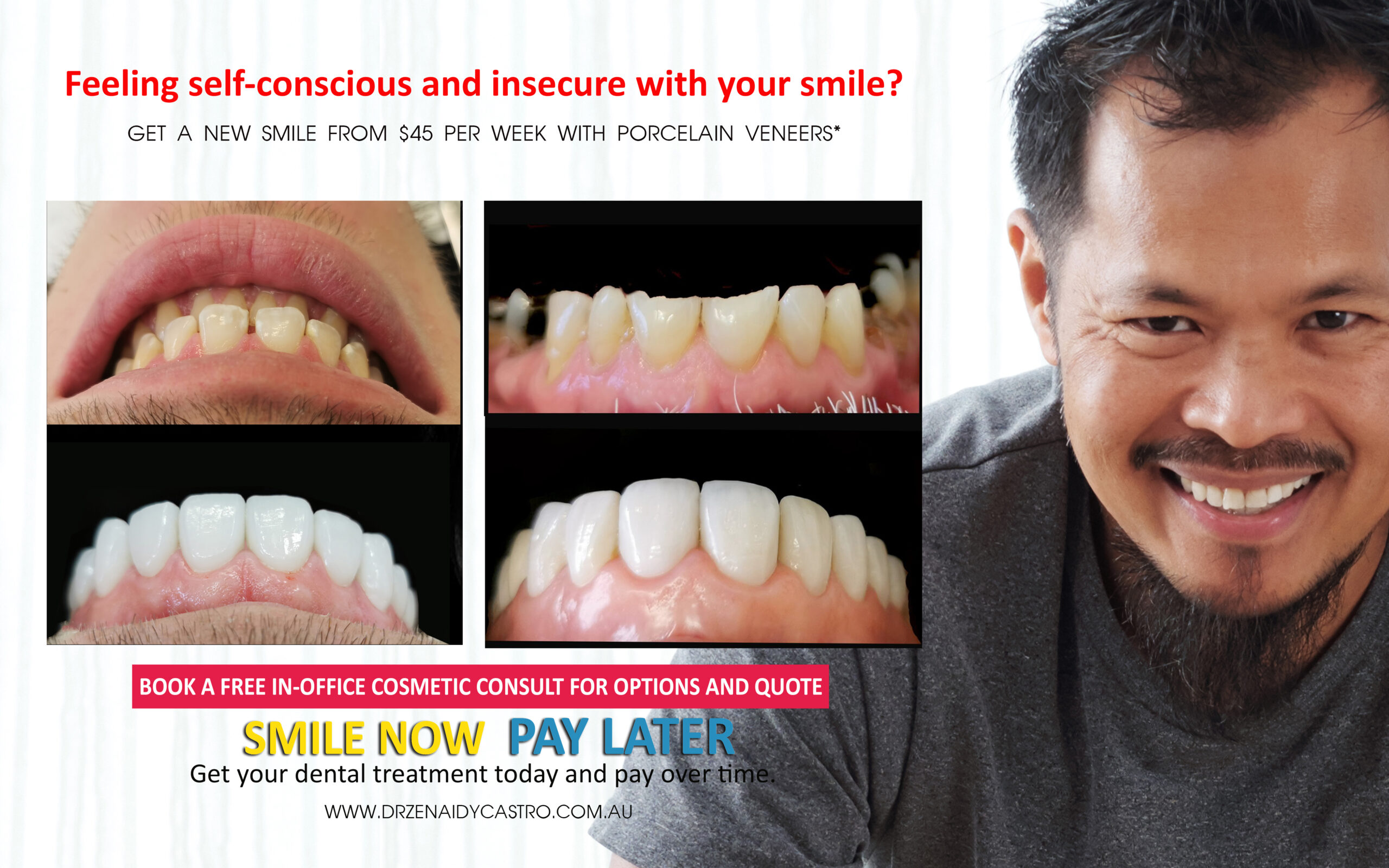

Key Highlights: Corporate vs Private Dentist Clinics in Australia
✨ Corporate clinics often focus on volume-driven models, while private dentists prioritize personalized care
✨ Patients in private clinics report higher satisfaction due to consistency in care and trust with one provider
✨ Corporate-run practices often operate on targets, with treatment plans sometimes influenced by quotas
✨ Dentist-owned practices typically have greater clinical freedom to tailor treatment to patient needs
✨ Long-term patient-dentist relationships are more common in privately owned practices
✨ Corporate clinics may have rotating staff, leading to lack of continuity in care
✨ Private dentists usually have deeper ties to the community and patient families
✨ Corporate clinics benefit from shared resources but may lack flexibility in individualized care
✨ Treatment cost transparency may be clearer in smaller, privately run clinics
✨ Many corporate practices are owned by investors, not healthcare professionals
✨ Privately owned clinics often provide more time per appointment and in-depth consultation
✨ Some corporate models can upsell treatments due to internal business targets
✨ Dentist-owners have vested interest in outcomes and reputation—quality matters more
✨ Corporate clinics may follow strict protocols, which can reduce creative treatment flexibility
✨ Private clinics often offer more payment flexibility or tailored financial plans
✨ Ethical concerns have arisen around over-treatment in certain high-volume corporate clinics
✨ Private clinics tend to invest more in long-term technology and patient relationships
✨ Dentists in private clinics can form holistic care plans without external business pressure
✨ Word-of-mouth and reputation play a bigger role in private clinic growth
✨ Patients who fear judgment or rushed care often feel more comfortable in privately owned environments
???? Call Vogue Smiles Melbourne and Noble Park today for a comprehensive general and smile makeover treatment — offering competitive pricing, bundled porcelain veneer specials, interest-free dental plans, and Superannuation access assistance.
REQUEST AN ONLINE PERSONALIZED QUOTE ➤
REQUEST FOR A FREE TELECONSULTATION ➤
Exploring the Differences in Care, Cost, Experience, and Ethics
Introduction: Why the Ownership of Your Dental Clinic Matters
When Australians choose a dental clinic, they often focus on location, price, or availability. But one factor that remains largely overlooked—yet deeply influential—is the ownership structure of the clinic. Is it run by a corporation with dozens (or hundreds) of branches nationwide? Or is it privately owned and operated by the dentist who sees you?
While the average patient may not immediately notice the difference, over time, the distinctions in quality, continuity, treatment philosophy, and even pricing begin to reveal themselves. This article will explore the profound differences between corporate-run and privately owned dental clinics in Australia—from the motivations behind each model to how they shape the patient experience and outcomes.
The Rise of Corporate Dental Clinics in Australia
Over the last 20 years, Australia has seen a significant rise in the corporatisation of dental care. Large healthcare corporations and investment-backed groups have acquired many independent dental practices, rebranding them under broader networks. These corporate chains now dominate large portions of the urban dental market and are expanding into regional areas.
Why the shift? Dentistry has become a lucrative sector with relatively stable revenue and the ability to cross-sell services such as orthodontics, cosmetic procedures, and hygiene care. Corporations saw this opportunity and brought in business models traditionally used in retail—volume-based targets, streamlined service processes, and franchise-like expansions.
Some examples of corporate dental networks in Australia include:
-
Pacific Smiles Dental
-
Maven Dental Group
-
1300SMILES
-
Bupa Dental Clinics
-
Nib Dental Care Centres
What Defines a Corporate Clinic?
Corporate dental clinics are typically:
-
Owned by non-dentist shareholders or parent companies
-
Managed through centralized systems and performance KPIs
-
Staffed by rotating dentists or contractors
-
Standardized in treatment protocols and patient handling
What This Typically Means:
-
Standardised protocols: These clinics often follow strict, systemised treatment pathways.
-
Sales-driven metrics: Dentists may be under pressure to meet financial targets or “production quotas.”
-
Higher staff turnover: You may see a different dentist each time due to rotating rosters.
-
Upselling risk: Some patients feel pushed toward elective or high-ticket treatments.
-
Less flexibility: Less room for customising treatment plans or payment arrangements due to corporate policies.
-
Limited patient-dentist continuity: Relationships may feel less personal, which can affect trust and comfort.
The model often prioritizes operational efficiency and profitability across multiple locations. While this may improve access and convenience, critics argue it can reduce the quality of individualized patient care.
What Defines a Privately Owned Dental Practice?
A privately owned dental clinic is typically:
-
Owned and operated by the primary dentist
-
Run as a long-standing business in the local community
-
More flexible in treatment planning, pricing, and scheduling
-
Focused on building long-term relationships with patients
What This Typically Means:
-
Continuity of care: You’re treated by the same dentist who knows your history and preferences.
-
Patient-first philosophy: More time is often spent understanding your fears, goals, and financial situation.
-
Tailored treatments: Greater flexibility in how care is delivered—emotionally, clinically, and financially.
-
Lower pressure: Less emphasis on sales, more on relationships and long-term outcomes.
-
Accountability and passion: The dentist-owner is personally invested in your results and experience.
-
Longer-term staff relationships: The team is often stable and familiar, helping anxious patients feel safer.
Here, the dentist has autonomy over how care is delivered, what products are used, and how much time is spent with each patient. These clinics often rely heavily on referrals, reputation, and personalized service.
The Patient Experience: Continuity vs. Rotation
One of the starkest contrasts between the two models is continuity of care.
In a private clinic, you’re likely to see the same dentist year after year. They get to know your medical history, dental anxieties, treatment preferences, and family. Over time, this builds trust and allows for more tailored preventive care.
In corporate clinics, staff turnover is often higher. You might see a different dentist every visit. The practice might rely on shared databases for notes, but without a personal connection, this can feel cold or transactional. Many patients express frustration at re-explaining their concerns or feeling like “just another number.”
Time Pressure and Appointment Length
Privately owned clinics often allow more flexibility in appointment duration. If you need more time to ask questions or manage dental anxiety, they can accommodate that. The dentist isn’t answering to a higher business manager pushing daily patient quotas.
In contrast, corporate-run clinics often have time targets per patient. This can create pressure on the practitioner to work quickly, sometimes leading to rushed consultations or insufficient explanations. It also increases the risk of misdiagnosis or less thorough treatment.
Treatment Planning: Clinical Freedom vs. Protocol
Corporate dentists may be guided by structured treatment protocols designed to ensure standardization across clinics. While this helps ensure consistency, it can sometimes prioritize profit over patient-first solutions. There’s concern in the industry that some corporate models encourage upselling procedures—veneers, whitening, orthodontics—even when not strictly necessary.
In privately owned practices, the dentist has full clinical freedom. They can propose a treatment plan based on your budget, lifestyle, and long-term needs. There’s less pressure to meet internal sales targets and more incentive to provide only what’s essential.
Financial Transparency and Ethical Considerations
Privately owned dentists, especially those who live and work in the same community, tend to be more transparent with fees and more willing to offer:
Corporate clinics, although capable of offering similar financing, sometimes come across as more profit-oriented. Internal pressures to “perform” can lead to over-treatment, inflated costs, or unnecessary procedures—a concern that has been raised in professional dental associations and media investigations.
Pricing Differences and Perception of Value
Patients often assume corporate clinics will be cheaper due to economies of scale, but this isn’t always true. In fact, many corporate dental chains have higher baseline fees than boutique clinics. This is especially true in urban areas like Melbourne or Sydney, where overheads are shared but profits must support central admin, marketing teams, and investors.
Privately owned clinics can offer:
-
More flexible pricing structures
-
Loyalty incentives for families
-
Tailored discounts for pensioners or long-term patients
Their incentive is retention and satisfaction—not corporate growth charts.
Emergency Dentistry: Who Will Be There for You?
Imagine needing urgent dental care. With a private dentist you know, you’re more likely to receive compassionate, flexible scheduling—even after hours. The dentist may open up a time slot just for you.
In a corporate chain, you may have to wait in a queue, be redirected to another location, or be treated by someone unfamiliar. For patients with dental phobia or medical complexities, this inconsistency can be deeply unsettling.
Community, Loyalty, and Patient Empowerment
Privately owned dental clinics often invest heavily in community events, local schools, charity drives, and education. Their success depends on word-of-mouth and long-term loyalty.
They are more likely to:
-
Remember your name and health history
-
Send check-up reminders tailored to your actual needs
-
Call to follow up after a major procedure
-
Celebrate your progress
Corporate clinics may automate these touchpoints, but they can lack the human element that builds real trust.
Staff Morale and Dentist Job Satisfaction
Behind every dental experience is the dentist and their support team. In corporate dental settings, clinicians often report feeling like employees rather than autonomous professionals. Their schedules, treatment recommendations, and time spent with each patient may be dictated by corporate policy or business goals. This can create burnout, moral distress, or even high turnover.
Private practices typically offer a different experience. The dentist is usually both the owner and practitioner, giving them a greater sense of control, pride, and accountability. Team culture tends to be more intimate, cohesive, and mission-driven. Dental assistants and receptionists often work there long-term, fostering a stronger, more reassuring experience for patients.
Staff Training and Long-Term Investment in Skill
Corporate dental groups often provide internal training programs for staff. This can be positive—it ensures consistency and compliance across clinics. But some critics argue that this model also prioritizes productivity over mentorship or individual growth. Newly graduated dentists may be placed in high-pressure environments where they are expected to perform before they fully develop their patient communication or complex treatment planning skills.
In contrast, dentist-owners tend to invest personally in their team. They may mentor younger clinicians and support further education tailored to the individual. In private clinics, training is often built around patient experience and ethical standards, not just efficiency.
Investment in Technology and Facilities
Corporate dental clinics have the budget and scale to invest in the latest equipment across their network—digital scanners, 3D imaging, and AI diagnostics. However, this rollout can be uneven depending on the clinic’s location, volume, or profitability.
Private clinics, while smaller in scale, often choose investments that reflect the actual needs of their patient base. A dentist-owner is more likely to invest in digital dentistry, laser technology, or cosmetic systems because they genuinely believe in the benefit to their patients—not because of corporate mandates. Their decisions are more patient-driven, and often more timely.
Dentist Autonomy and Patient Advocacy
In private practice, the dentist is free to:
-
Refer patients to specialists of their choice
-
Offer conservative treatment options
-
Decline procedures they feel are unnecessary or unwise
-
Spend more time educating and reassuring patients
In corporate structures, dentists may face subtle (or direct) pressure to “perform” financially—whether that’s measured in revenue per patient or procedures per day. While this doesn’t mean unethical care is delivered, it can influence clinical decisions in complex cases, especially when quotas or targets are part of performance reviews.
Mental Health and Burnout in Corporate Clinics
Numerous studies and anecdotal reports indicate that corporate dental environments can lead to increased burnout among clinicians. Dentists working under corporate KPIs may feel reduced autonomy, experience “moral fatigue,” or struggle with the disconnect between their clinical ethics and business expectations.
Private clinic owners certainly face stress—especially financial and administrative—but they usually experience higher job satisfaction due to the meaningful relationships they build and the freedom they enjoy in delivering care that aligns with their values.
Handling Complaints and Patient Feedback
When you have a concern about your dental experience, how it’s addressed can vary greatly.
In a corporate clinic:
-
Complaints are often handled by a centralised system
-
There may be delays or impersonal responses
-
The dentist may have limited authority in how the situation is resolved
In a private clinic:
-
The issue is typically addressed directly by the dentist or practice manager
-
Responses are more empathetic and personal
-
There’s a stronger incentive to protect long-term relationships and local reputation
Patients who feel unheard or dismissed are more likely to trust a private clinic where feedback is treated as a dialogue—not a formality.
Breaking the Myth of Corporate “Affordability”
A common belief is that corporate dental chains are “cheaper” due to size and efficiency. But the reality is more nuanced. Corporations often charge higher consultation and itemised procedure fees to cover marketing, admin teams, compliance overheads, and shareholder profit.
Meanwhile, private dentists can offer:
-
Transparent bundled treatment plans
-
Staged approaches to suit budget
-
Flexible offers for families, students, or retirees
-
Competitive pricing without upselling
In fact, many patients discover that private clinics offer better value for care, especially when trust, comfort, and honesty are factored in.
Building Emotional Safety in the Chair
Corporate environments may unintentionally create emotional distance. The dentist-patient connection can feel transactional, especially if the practitioner changes frequently. For patients with dental anxiety, this can heighten fear and avoidance.
Privately owned clinics are often more attuned to emotional needs. The same dentist may treat you for years, know your sensitivities, check on your well-being, and create an emotionally safe environment for both children and adults. This sense of continuity and care is priceless in managing long-term oral health.
Choosing What’s Right for You
There’s no one-size-fits-all answer. Some patients appreciate the convenience of corporate clinics, especially those with multiple branches or online booking systems. Others find solace in the familiarity, flexibility, and emotional intelligence of a privately owned practice.
Key questions to ask yourself include:
-
Do I value long-term relationships in healthcare?
-
Do I prefer to see the same provider each time?
-
Am I comfortable discussing budget and treatment options openly?
-
Do I feel heard, understood, and never rushed?
If you answer yes to these, a privately owned dental clinic may better align with your expectations and values.
Final Thoughts: The Clinic You Choose Shapes the Experience You’ll Have
In Australia, we are fortunate to have access to both corporate and private dental models. But understanding the differences isn’t just about price or polish—it’s about trust, ethics, and connection. Your dental care should never feel like a business transaction. It should feel like a partnership.
Privately owned clinics like Vogue Smiles Melbourne and Noble Park focus on whole-person dentistry—where your smile, your fears, your finances, and your future are all taken into account. Whether you need a simple cleaning or a full smile rehabilitation, the ownership of your clinic directly affects how your story is written.
Choose a practice that sees you—not just your mouth.
So, What’s Better?
Neither model is automatically “better,” but:
-
If you value trust, emotional support, and consistency, privately owned practices often offer a more personalised experience.
-
If you’re looking for quicker access or wider locations, corporate clinics may provide convenience.
But for patients managing dental anxiety or financial stress, a privately owned clinic tends to be more compassionate and flexible—because care decisions are made by a dentist, not a boardroom.
Discover Compassionate, Judgment-Free Dentistry at Vogue Smiles Melbourne
At Vogue Smiles Melbourne and Noble Park, you’re not just a patient—you’re a person with a story, fears, and goals. Whether you’ve delayed treatment due to cost, anxiety, or life’s curveballs, we meet you with empathy and solutions—not judgment. Let’s rebuild your confidence, your comfort, and your smile together. Call us today on 9629-7664 or 0413 014 122 to book your free teleconsultation and start your journey toward happier, healthier dental care. Because you deserve a smile you love—and a team who truly cares.
One call can change your smile forever . Take control of your dental care decisions today.
????Call (03) 9629 7664 | 0413 014 122
REQUEST AN ONLINE PERSONALIZED QUOTE ➤
REQUEST FOR A FREE TELECONSULTATION ➤


Disclaimer:
The information on this website is for information purposes only. Is not a substitute for a proper professional care and advice. Each patient’s outcomes, risks, potential complications, and recovery differ. Any dental procedure, minor or major, carries risks, some minor and some serious. Before and after images seen on our Social Media and website pages are our actual patient and have been published/posted with our patients’ permission. All of our patients photos are subject to Copyrights protection. We are strong believers in responsible aesthetics. Every cosmetic, medical, or dental procedure comes with its own set of risks and benefits. Cosmetic Dentistry results will vary from patient to patient. Call our office and book for an actual in-office consultation for us to assess if you are a good candidate for a particular treatment. All of our Specials and packages posted on this site are subject to terms, conditions and availability.The exact fee for a particular cosmetic procedure will be determined after a preliminary assessment distinguishing your unique personal needs and the type of work needed. The prices mentioned on any of our website as well as any mentioned payment plan by a third party source, are just a guide and is subject to change. Call the third party financing providers or visit their website for more info. Please call the office on 9629-7664 for further queries or clarification.




